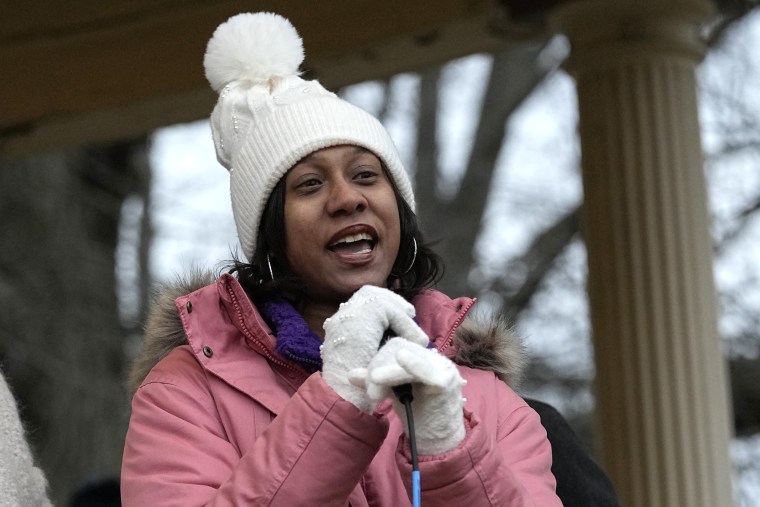A Black Ohio woman who was charged after having a miscarriage in her bathroom toilet last year said she does not “want any other woman to go through what I had to go through.”
Brittany Watts, 34, spoke with CBS Mornings in her first interview following her September arrest. Authorities got involved after a hospital nurse who consoled Watts when she sought medical help called the police, Watts said. Earlier this month, an Ohio grand jury decided to dismiss the charges.
On Sept. 19, Watts was 21 weeks and five days pregnant when she noticed an “uncomfortable” fluid leaking from her, she said. Her OB-GYN told Watts that her pregnancy was nonviable, according to a report by the Trumbull County Coroner’s Office. Watts was then transported by ambulance to Mercy Health St. Joseph Warren Hospital in Warren, Ohio, where she waited hours “for the doctor to come in or call,” she said during the interview.
“I kept asking whoever would come in to check my vitals — I said, ‘Have you heard anything?’ and they were like, ‘Oh, well, we’re still waiting. We’re still waiting.’”
Watts waited at least eight hours before deciding to leave the hospital “against medical advice,” according to medical records. The hospital report also states that Watts understood her risk of complications, including hemorrhage, sepsis or death.
Watts returned to the hospital the next day to get a labor induction; she waited for 11 hours, she said, but was never induced and opted to go home.
“I felt frustrated,” Watts said. “I felt ignored.”
Watts’ case was referred to Mercy Health’s ethics committee that day, after staff reported concerns with Watts using the word “abortion” when discussing the next steps to her care, according to medical records shown by CBS News. In Ohio, abortions after 22 weeks into a pregnancy are banned with exceptions to life-saving care, according to the state’s law.
In a statement to NBC News, Mercy Health declined to give specifics about Watts’ care, citing patient privacy.
“It is with the deepest empathy during difficult times that we care for those who have suffered a great loss,” the statement said.
While waiting on a decision about an induction on Sept. 20, Watts said she was worried about her own health. She miscarried two days after leaving the hospital for a second time.
Upon arriving at the hospital a third time in the middle of her miscarriage, Watts said a nurse reassured her that “everything’s going to be OK.” Meanwhile, that nurse, whom the hospital has not identified, called the police, Watts said. In a call with a 911 dispatcher shared by CBS News, the nurse said Watts “didn’t want to look” at the fetus. She also alleged Watts “didn’t want the baby and she didn’t look,” according to the 911 audio. Watts said, however, this was not true.
“I said I did not want to look,” Watts said Friday. “I have never said I didn’t want my baby. I would have never said something like that. It just makes me angry that somebody would put those type of words in my mouth to make me seem so callous and so — so hateful.”
Police arrested her days later on charges of abusing a corpse, under a state law that punishes those who treat a human corpse in a “way that the person knows would outrage reasonable family sensibilities” or “community sensibilities.” The fifth-degree felony charge is punishable by up to one year in prison and a fine of up to $2,500.
Warren Police did not immediately respond to a request for comment.
An Ohio grand jury decided on Jan. 11 that Watts would not be indicted. In a statement, Trumbull County Prosecutor Dennis Watkins said that “Watts did not violate the Ohio criminal statute.”
Traci Timko, Watts’ attorney, said his client was painted as a “young, unmarried Black woman that did not comply with their orders to keep waiting.” The hospital, she added, “weaponized the police.”
Watts said she believes her race played a role in why she was charged. She also said there are no regulations explaining what women like herself should do in the situation she experienced. Today, Watts said she is “motivated” that the charges have been dropped and is advocating for changes in laws for women who experience miscarriages.
“As the old saying goes, ‘History repeats itself,’” Watts said. “I don’t want it to happen in this case.”

